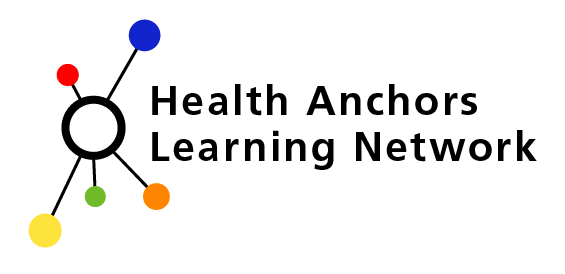How can the NHS support the needs of those most excluded from society through its role as an anchor organisation?
Guest blog by Amy Newman, a Policy and Strategy Trainee on the NHS Graduate Management Training Scheme
The NHS has a unique opportunity to support the most socially excluded people in our society through its service provision and its role as an anchor institution. However more could be done to optimise the impact of its anchor role.
I am in my first year of working in the NHS, as a Policy and Strategy Trainee on the Graduate Management Training Scheme. I have had an amazing opportunity to work in the National Healthcare Inequalities Improvement Programme for my first placement, and the work around improving the healthcare inequalities inclusion health groups face has been of particular interest to me. So, what are inclusion health groups?
Inclusion health is the term used to describe any population group that is socially excluded. People within these groups tend to experience multiple overlapping factors that contribute to poor health and are some of the most vulnerable people in our society. They include: people experiencing homelessness, drug and alcohol dependence, vulnerable migrants, Gypsy, Roma and Traveller communities, sex workers, people in contact with the justice system, victims of modern slavery and other socially excluded groups.
These experiences can lead to very poor health outcomes and a lower average age of death, relative to the general population. The considerable healthcare inequalities experienced by these groups are often due to multiple barriers. People may:
Not know how or where to access help.
Face barriers to accessing services as they may not be designed in a way that reaches them.
Have had negative experiences in the past.
Not speak English or have difficulties reading or writing.
The Marmot Review: 10 Years On highlighted that despite efforts, healthcare inequalities are still a key issue and that some inequalities have increased. The pandemic has further illuminated and increased existing inequalities. It is clear that there is a need to make healthcare inequalities everybody’s business.
The National Healthcare Inequalities Improvement Programme within NHS England and NHS Improvement have developed the Core20PLUS5 approach as a support offering for reducing healthcare inequalities. The ‘PLUS’ refers to population groups determined at ICS level that are experiencing poorer-than-average health access, experience and/or outcomes. This may include inclusion health groups. It asks ICSs to consider the following priorities when improving services in relation to ‘PLUS’ population groups:
The need for a joined-up approach to mitigate the use of universal policies that can unintentionally exclude the most vulnerable and marginalised.
Building trust with people and communities; using communication that allows people to understand and use information to make decisions about their health.
Working with people with a lived experience as well as local partners to assess and improve how inclusion health groups can be supported.
We can align the NHS’s role as an anchor institution with Core20PLUS5 population groups and the priorities above. I have been researching the ways in which NHS anchor organisations can support inclusion health groups and have found some examples of great work in this area:
The Reconnect programme focuses on supporting those in contact with the justice system to engage with community-based services that provide health and care support, reducing the likelihood of reoffending and improving the health of this population.
Sandwell and West Birmingham NHS Trust and St Basils ‘Live and Work’ scheme uses NHS estates to provide housing for young people who were homeless or at risk of homelessness, alongside offering paid apprenticeships in the hospital. The scheme utilises estates as well as providing employment opportunities, two key opportunities anchor organisations can use to increase the impact of their activity.
While there is excellent work going on, I think there is the opportunity for much more to happen in this space. So, what can you do? You can sign up the Health Anchors Learning Network and to learn and share with people who work in, or have responsibility for, anchor work about how to use your resources and influence to make a positive impact on the social determinants of health, reducing healthcare inequalities.
